-
Keystone pipeline clears another hurdle as Nebraska governor approves project
On Tuesday, Nebraska governor Dave Heineman notified President Obama that he approved the controversial Keystone XL pipeline to go through the state. This marks a significant step forward in the project, which was delayed by the administration last year.
-
-
Pakistan bans two video games for depicting country as terrorist haven

A government-licensed trade organization in Pakistan has banned two popular video games because they depict Pakistan as a country soft on terrorism. A trade association order to member stores instructed that the games be removed off the shelves of video game stores.
-
-
Fracking generates less wastewater per unit of gas, but more overall
Hydraulically fractured natural gas wells are producing less wastewater per unit of gas recovered than conventional wells would. The scale of fracking operations in the Marcellus shale region – which stretches from New York to Virginia and accounts for about 10 percent of all natural gas produced in the United States today — is so vast, however, that the wastewater it produces threatens to overwhelm the region’s wastewater disposal capacity.
-
-
Thwarting facial-recognition, photo-tagging software
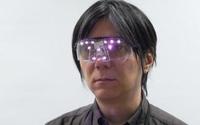
Information about when and where photographed subjects were when their pictures were taken is readily disclosed through photos taken, and the information is disclosed and distributed without their permission. The problem has become even worse due to the popularization of portable terminals with built-in cameras and developments in SNS and image search technologies. Japanese researchers offer a solution: goggles or glasses which, when equipped with near-infrared LED emitter. :
-
-
DOE addresses rare earth, critical materials shortage
The U.S. Department of Energy announced earlier this month that a team led by Ames Laboratory in Ames, Iowa, has been selected for an award of up to $120 million over five years to establish an Energy Innovation Hub which will develop solutions to the domestic shortages of rare earth metals and other materials critical for U.S. energy security.
-
-
New approach to military manufacturing

In the past, fighter aircraft, tanks, and other complex military systems have been built in a craftsman-like process by a small number of highly specialized contractors. This is a costly approach and DARPA is attempting to replace it with a more efficient “correct by construction” process similar to that practiced by the semiconductor industry, which has an impressive track record in getting systems right in the first place.
-
-
Revealing full-body scanners to be removed from airports
One of the more controversial post-9/11 security devices, the ubiquitous and uncomfortably intrusive full-body scanners, will be removed from service by the Transportation Security Administration (TSA). On Friday, the agency announced it would begin to remove the scanners from U.S. airports this summer. The anatomically revealing backscatter scanners are being replaced by the ore discreet millimeter wave devices.
-
-
Five people injured as guns go off at gun shows
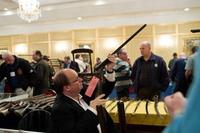
“Gun Appreciation Day” rallies were held in cities around the country this weekend, and gun shows were doing brisk business; five people were injured as guns went off accidentally in three such shows.
-
-
The untapped potential of tidal power
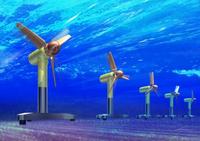
New research from a global group of scientists and engineers has been published in a special issue journal of the Royal Society. The work is in support of tidal power, which has the potential to provide more than 20 per cent of the U.K. electricity demand. While the predictable nature of tides makes them an ideal renewable energy source, more so than wind, the ability effectively to harness energy from the tides has so far proved elusive.
-
-
Global demand for food and energy is growing, and so does land and water “grabbing”

As world food and energy demands grow, nations and some corporations increasingly are looking to acquire quality agricultural land for food production. Some nations are gaining land by buying up property — and accompanying water resources — in other, generally less wealthy countries.
-
-
Privately run detention center locks up immigrants for months
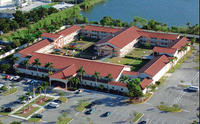
Hundreds of immigrants who have committed minor offenses have been locked up for weeks or months at a time in a Broward County, Florida facility run by a private company. The majority of the immigrants have been accused of entering the country illegally or staying longer than were allowed to.
-
-
Tires shipped from Arizona to a U.K. contained black widow spiders
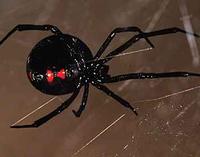
Two shipments of tires from an Arizona company to a U.K.-based client contained dozens of deadly Black Widow spiders; it appears that the spiders nested in the tires in Arizona, and hatched a brood of young spiders while the shipment was on its 5,000-mile journey to England.
-
-
Military systems hibernate on the sea floor, then woken up remotely
Almost half of the world’s oceans are more than four kilometers deep. This provides considerable opportunity for cheap stealth, but the vastness and depth make retrieval costs prohibitive. DARPA wants to developing deployable, unmanned, distributed systems which hibernate on the deep-ocean floor in special containers for years at a time. These deep-sea nodes would then be woken up remotely when needed and recalled to the surface
-
-
DARPA’s first FANG Challenge begun yesterday
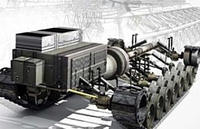
More than 700 participants, organized in 150 teams, yesterday begun collaboration to design the mobility and drivetrain systems of a next-generation, amphibious infantry fighting vehicle. The goal of the competition is to compress the design-to-production time of a complex defense system by up to a factor of five.
-
-
Global warming threatens U.K. diet
The number of days with temperatures over 32 degrees C has more than doubled in some parts of France over the last fifty years. Many other land areas show similar increases. By the 2020s, temperatures over 32 degrees C could occur over large areas of France where previously they were uncommon. Maize yields are reduced significantly for each day with temperatures over around 32 degrees Celsius. The United Kingdom imports more maize from France than anywhere else in the world, and declining crop yields in France mean that U.K. consumers will have to pay more for maize-based foods, or change their diets.
-
- All
- Regional
- Water
- Biometrics
- Borders/Immig
- Business
- Cybersecurity
- Detection
- Disasters
- Government
- Infrastructure
- International
- Public health
- Public Safety
- Communication interoperabillity
- Emergency services
- Emergency medical services
- Fire
- First response
- IEDs
- Law Enforcement
- Law Enforcement Technology
- Military technology
- Nonlethal weapons
- Nuclear weapons
- Personal protection equipment
- Police
- Notification /alert systems
- Situational awareness
- Weapons systems
- Sci-Tech
- Sector Reports
- Surveillance
- Transportation
Advertising & Marketing: advertise@newswirepubs.com
Editorial: editor@newswirepubs.com
General: info@newswirepubs.com
2010-2011 © News Wire Publications, LLC News Wire Publications, LLC
220 Old Country Road | Suite 200 | Mineola | New York | 11501
Permissions and Policies
Editorial: editor@newswirepubs.com
General: info@newswirepubs.com
2010-2011 © News Wire Publications, LLC News Wire Publications, LLC
220 Old Country Road | Suite 200 | Mineola | New York | 11501
Permissions and Policies
